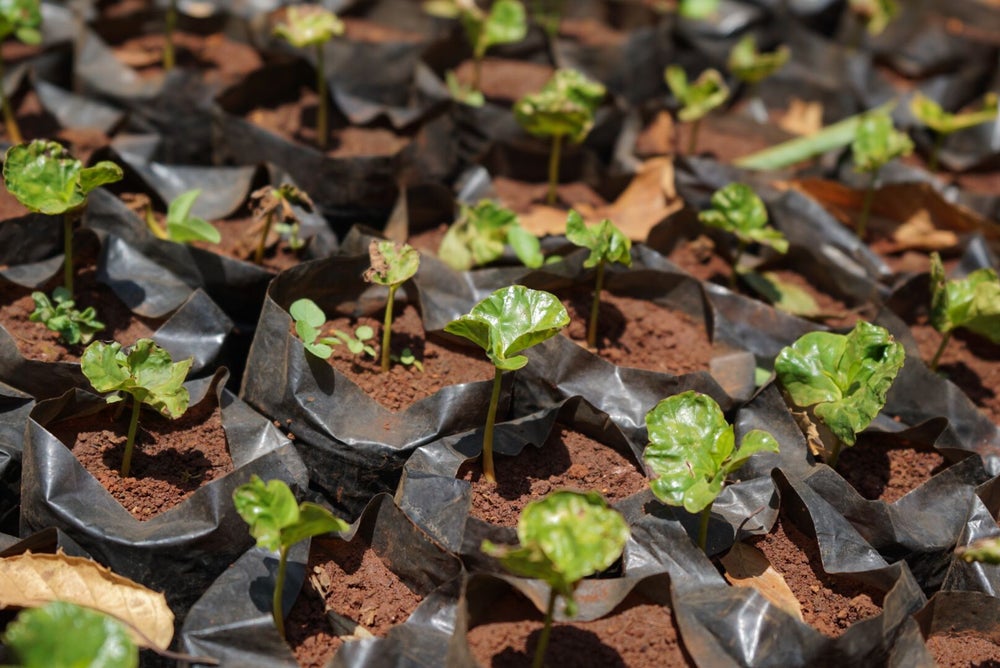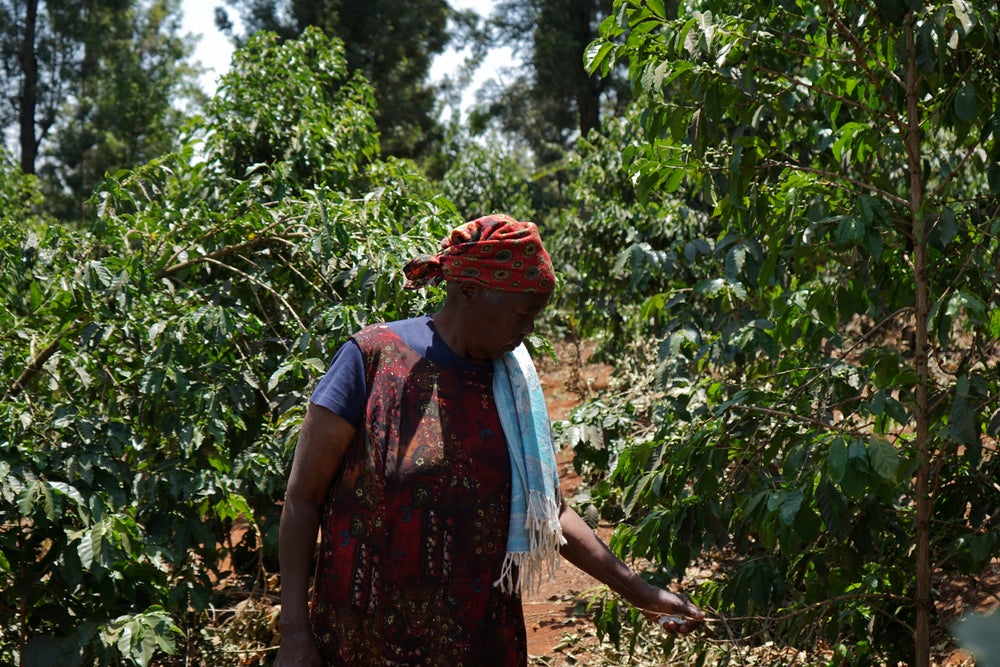About This Coffee
Mukunga Estate is owned and operated by Hanner Wanjiku Mukunga, a producer farming in Kiambu county. The estate’s high altitude of 1,850 to 1,880 meters above sea level creates the ideal conditions for cultivating high quality coffee. Hanner complements these conditions with a focus on quality-oriented processing.
The estate is surrounded by the scenic Aberdare forest. The forest’s slopes and highlands are well known as a specialty-coffee area.
Hanner is a force in the coffee-producing community in Kiambu. She has an arabica seedling nursery to grow seedlings to renovate her farm. She also sells seedlings to her neighbors at affordable rates to make it easier for everyone to maintain youthful, productive trees.
Cultivation
Approximately 90% of the trees planted on Mukunga estate are SL28. The remaining trees are Ruiru 11. Most of the coffee trees on the farm were planted in the 1970s. The farm benefits from red volcanic soil and high annual rainfall that’s separated into two rainy and two dry periods each year.
Harvest & Post-Harvest
Hanner selectively handpicks ripe, red cherry and processes it on his estate. Cherry is pulped on a motorized 3-disk pulper and fermented. Following fermentation, parchment is washed in clean water and laid to dry on raised beds.
About Kiambu
Kiambu is right outside Kenya’s capital city of Nairobi but is nonetheless known for agriculture – specifically coffee and tea. The county is also home of the Kenyan Coffee Research Foundation.
Kiambu County is also well known for its dairy production, and is the largest dairy producing county in Kenya. Many of the growers here adhere to organic fertilizing practices, using only cow manure instead of agrochemicals on their coffee trees.
Farmers in Kiambu face low production due to pests and disease while simultaneously having to pay high prices for inputs. In recent years, many have felt the strain and have sold their land to real-estate developers looking to build on the edge of Nairobi.
AB Grade
Kenyan coffees are classified by size. AB beans are those that are between screen size 15 and 18 meaning that beans are between 6 and 7 millimeters in size.
Coffee in Kenya
Though coffee growing had a relatively late start in Kenya, the industry has gained and maintained a impressive reputation. Since the start of production, Kenyan coffee has been recognized for its high-quality, meticulous preparation and exquisite flavors. Our in-country sister company, Sucafina Kenya, works with farmers across the country to ensure these exceptional coffees gain the accolades they deserve.
Today, more than 600,000 smallholders farming fewer than 5 acres compose 99% of the coffee farming population of Kenya. Their farms cover more than 75% of total coffee growing land and produce nearly 70% of the country’s coffee. These farmers are organized into hundreds of Farmer Cooperative Societies (FCS), all of which operate at least one factory. The remainder of annual production is grown and processed by small, medium and large land estates. Most of the larger estates have their own washing stations.
Most Kenyan coffees are fully washed and dried on raised beds. The country still upholds its reputation for high quality and attention to detail at its many washing stations. The best factories employ stringent sorting practices at cherry intake, and many of them have had the same management staff in place for years.

